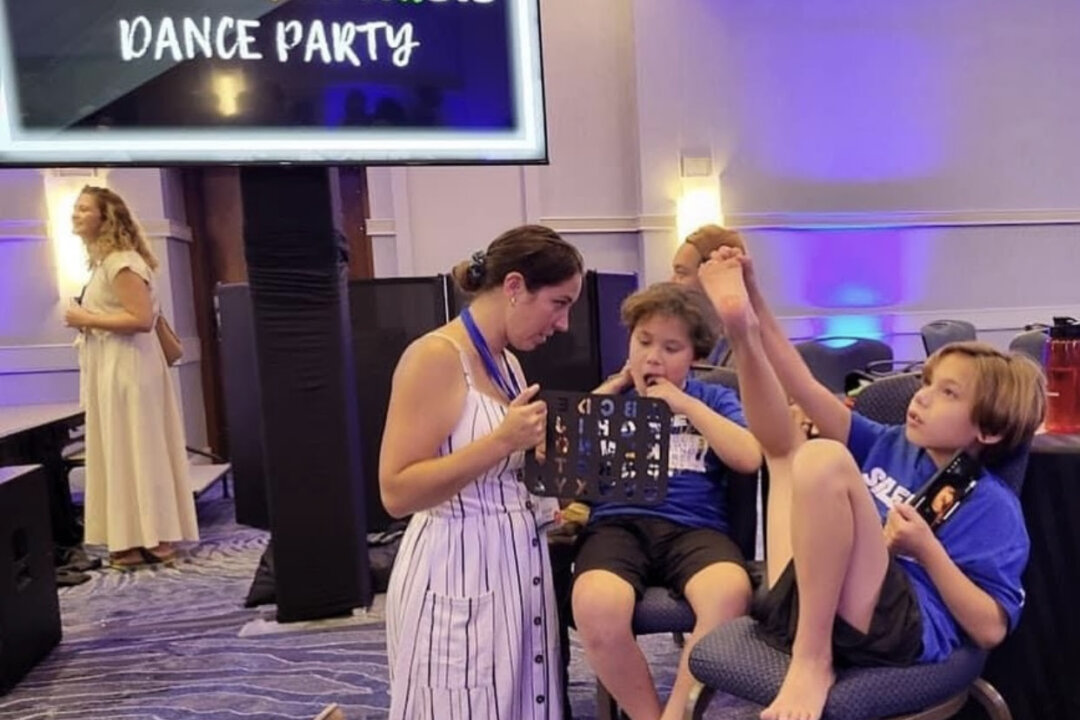The journey to find a voice has been transformative for many nonspeaking individuals with autism. A notable example is Elizabeth Bonker, who captivated audiences during her graduation speech at Rollins College in Florida in 2022. Bonker, who has been unable to speak since the age of 15 months due to her autism, delivered a powerful message that resonated widely, garnering a standing ovation and quickly going viral on social media.
Bonker’s speech was inspired by a quote from Alan Turing, the renowned British mathematician known for his role in breaking Nazi encryption codes during World War II. She concluded her address with these words: “Sometimes, it is the people no one imagines anything of who do the things no one can imagine.” This profound statement highlights the potential that lies within individuals often overlooked by society.
The use of communication devices, such as keyboards and letterboards, has played a crucial role in allowing nonspeaking individuals to express themselves. These tools enable users to spell out words and phrases, providing a means for them to articulate their thoughts and feelings. Bonker has become a prominent advocate for this method, demonstrating how technology can bridge the gap between silence and self-expression.
Bonker’s journey did not stop with her graduation speech. She has since become a published author, poet, and lyricist, further showcasing the capabilities of nonspeaking individuals. Her rise as a public speaker has inspired many, proving that communication is not solely reliant on vocalization.
The experiences of Bonker and others like her shine a light on the broader implications of autism. For many, the challenge is not a lack of intelligence or understanding, but rather a barrier in communication. By utilizing modern technology, these individuals can share their insights, creativity, and experiences that would otherwise remain unheard.
The impact of Bonker’s advocacy extends beyond her personal achievements. She has sparked a conversation about the importance of inclusive practices in education and society. Nonspeaking individuals often face significant barriers, from misunderstanding to exclusion, that can hinder their personal and professional growth. Through her activism, Bonker emphasizes the need for increased awareness and acceptance of diverse communication methods.
As discussions surrounding autism evolve, the emphasis on communication accessibility is increasingly recognized as vital. Many organizations and researchers are exploring ways to support nonspeaking individuals in their quest for autonomy and self-expression. This includes advocating for resources that promote the use of communication devices and training programs for caregivers and educators.
Elizabeth Bonker’s story serves as a reminder of the resilience and potential of those who navigate life without traditional means of communication. Her achievements highlight the importance of embracing diverse communication methods and the role of technology in fostering independence among nonspeaking individuals.
As society continues to learn from the experiences of individuals like Bonker, there is hope for a more inclusive future where everyone has the opportunity to be heard.







